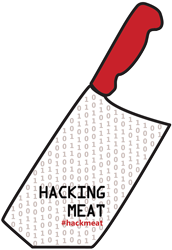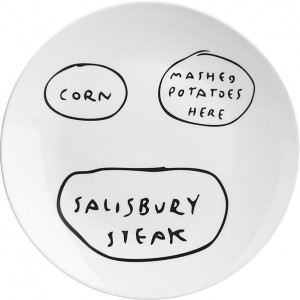
Hacking Meat is an online conversation exploring how can information and technology be used to hack (or reimagine) a more sustainable, profitable and healthy future of meat. Join the conversation and share your ideas or product requests in the comments, on Twitter using #hackmeat, on Facebook or at the Hack//Meat hackathon happening December 7-9 in NYC.
Guest post by Kara Rota of Cookstr
I advocate a shift in how we eat that emphasizes the flavor, the quality and the provenance of meat over its quantity. In order to eat differently, we need to learn to cook differently. Eating less meat is never an eater’s only priority: dietary considerations and nutritional needs, taste preferences and skill level all play a large role. Helping users find tested, trusted recipes that are outside their existing comfort zone is what I focus on.
I work at Cookstr, a technology company focused on food, driven by the power of metadata. Cookstr is powered by a content management system (CMS) created by and for non-technologist food experts. Culinarians use this CMS to apply their expert knowledge to each recipe, providing the context that makes the recipe meaningful: is the dish kid-friendly? Is it gluten-free? Is it good for Thanksgiving, or Valentine’s Day? Is it Cantonese or Szechuan? What are the mood, taste and texture? Cookstr’s nutritional platform then allows full nutritional information to be calculated for each recipe. Recipe (content) + metadata (context) = powerful, customized search, and a seamless user experience around discovering recipes that are just right, right now.
This Italian recipe for Pasta and Lentils uses four ounces of pancetta to flavor a recipe that serves six – a perfect example of meat as a condiment. A Hungarian Goulash Soup stretches a half-pound of beef chuck for a soup that makes eight servings, bolstered by plenty of onions and stock.
Technology is a big part of the answer here, but not in the form of in vitro meat. Creating artificial non-animal meat products doesn’t address the health concerns of eating too much meat, nor does it challenge us to think about ways of cooking and eating that are different from the meat-centric plates we are so used to. In vitro meat pushes eaters even further from th
inking about the origins of their food. Good technology should help us adapt, rather than spending disproportionate resources in order to cling to outmoded and unsustainable systems. When applied to something as tangible and “real” as food, technology can spur incredible positive change on an individual and institutional level.
Cooking together is as important now as it’s ever been. Societies are shaped by how and what they eat. Moving meat away from the center of the plate, treating it as a condiment, a treat, as just another unfetishized ingredient, represents a tremendous cultural shift. It’s intimidating, because many of us don’t know how to cook that way. We never learned.
I’m not the first to say that this country has a tendency to be more than a little all-or-nothing. If crash dieting and bacon sundaes have taught us anything, it’s that we like excess, and we like limitations in excess. The idea of being vegetarian-ish, or flexitarian, or vegan much of the time, challenges the way we’ve identified ourselves as eaters. It’s also a plausible way forward. For the last four years, Americans have been eating less and less meat per person. The shift has started, but eaters need resources to follow it. Adding recipes to home cooks’ everyday repertoires that treat meat as a small percentage of a dish rather than its focal point represents the long-term dietary lifestyle change we need.
How can we use technology to help us cook more and eat less? Let us know in the comments, on Twitter using #hackmeat, on Facebook or at the Hack//Meat hackathon happening December 7-9 in NYC.
___________________________________
 Kara Rota is Director of Editorial and Partnerships at Cookstr, a technology company dedicated to recipes and nutrition and co-founded by Tipping Point Partners, a New York City-based “institutional entrepreneur.” Kara is a board director of Girls in Tech NYC and an Angel Alliance member of the Lower Eastside Girls Club. She earned her BA from Sarah Lawrence College, where she wrote her undergraduate thesis on technoethics, posthumanism, cyborgs and RoboCop. She tweets @karalearota.
Kara Rota is Director of Editorial and Partnerships at Cookstr, a technology company dedicated to recipes and nutrition and co-founded by Tipping Point Partners, a New York City-based “institutional entrepreneur.” Kara is a board director of Girls in Tech NYC and an Angel Alliance member of the Lower Eastside Girls Club. She earned her BA from Sarah Lawrence College, where she wrote her undergraduate thesis on technoethics, posthumanism, cyborgs and RoboCop. She tweets @karalearota.



